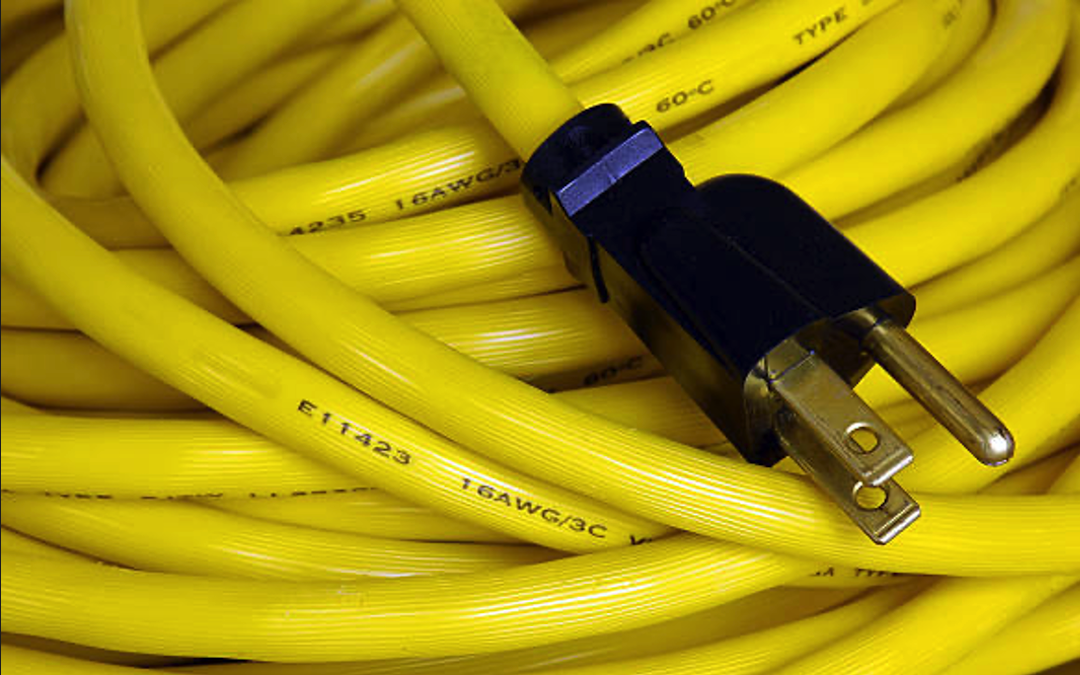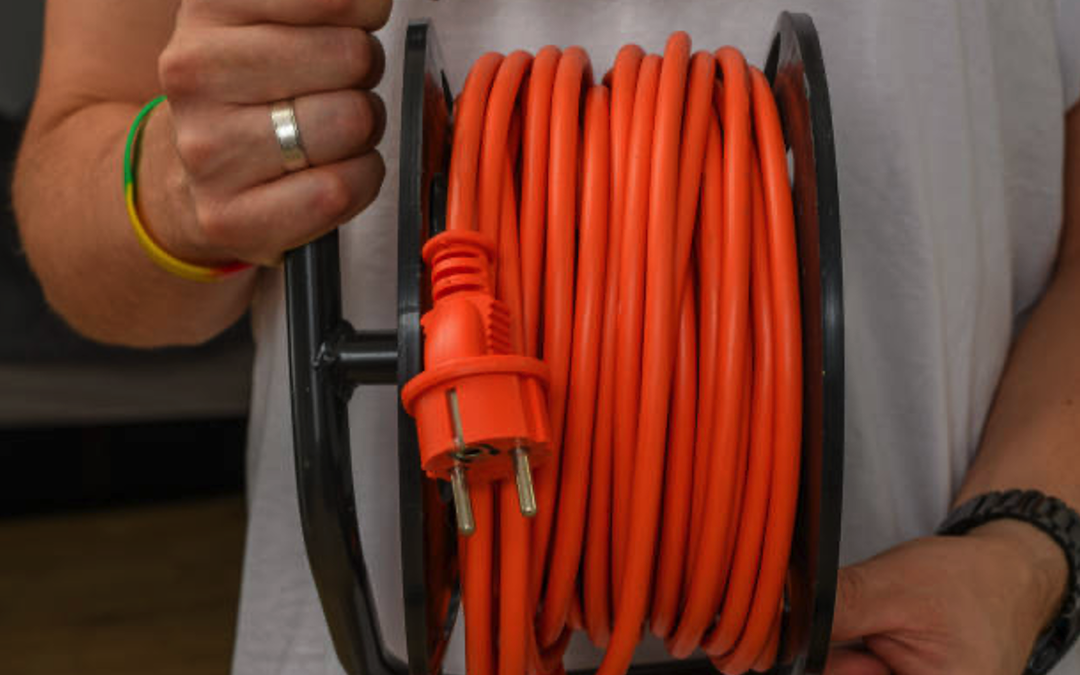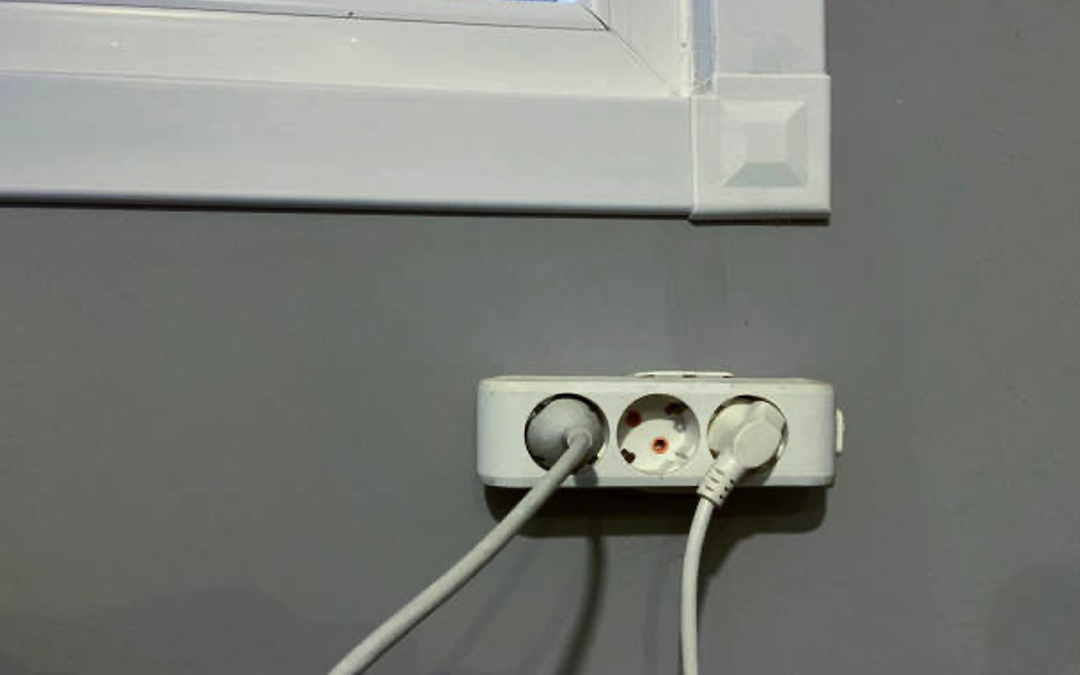
Heavy-duty extension cords are indispensable for many jobs in your garden, on a building site, or around the house. They provide the required power for several gadgets and equipment. However, good handling and storage of these cords guarantee their lifetime and safe operation.
Extension cords may become broken and provide major safety concerns if improperly maintained. This article lets you understand how your heavy-duty extension cord should be stored and maintained. We will go over easy and efficient techniques for maintaining good condition on your cord. Follow along!
1. Store Your Cords Properly
Proper heavy-duty extension cord storage is vital. First, start by correctly coiling the cable. To avoid kinks, create big loops about the size of the hula hoop. Steer clear of tight coils, as they could break the internal wires. Once coiled, use a cord organizer or Velcro strap to hold the loops in place. This helps the cord not to tangle.
Keep the coiled cord somewhere cold and dry. Avoid highly damp or hot environments, compromising the cord's insulating quality. A decent option is usually a garage or shed, provided the temperature is not too hot or moist. Another handy storage method is hanging the rope on a pegboard or hook. This keeps the cable off the ground, lowering the possibility of injury or stepping on it. Also, ensure the hook is robust enough to handle the cord’s weight.
If you have multiple extension cords, label them. This eliminates needless uncoiling and allows you to locate the correct cord quickly.
2. Inspect Your Cords Regularly
Regular inspection of your heavy-duty extension cords is important for safety. Check the cord’s length before and after every use. Look for exposed cables, cuts, and cracks. These show damage capable of generating fires or electrical shocks.
Focus especially on the cord’s ends where the plugs are. Ensure there are no loose connections or bent prongs. There should be no gaps between the plugs’ tightly fast attachment to the cord. Should damage be discovered, do not use the cord. Change it or get it expertly fixed.
Also, look at the cord's insulation. If the outer coating feels sticky or has melted areas, it’s a sign of overheating. This can occur if the cord is used excessively or with gadgets that consume too much power. Overheating makes the cord dangerous since it could harm its internal wiring.
Look over the plug’s prongs as well; they should be straight, not corroded. Corrosion might endanger safety and compromise the electrical connection.
Frequent inspections enable you to find issues early. This ensures your extension cords are always in good running order and helps to prevent mishaps.

3. Keep Your Cords Clean
Maintaining a clean heavy-duty extension cord is crucial. Over time, dirt and trash might compromise the cord. Cleaning is simple and should be done regularly.
Unplug the cord first, then lay it out flat. Clear any loose dirt or dust with a dry cloth. Use a moist cloth with mild soap and water to clean tough stains. Water could harm the internal wires; hence, avoid soaking the cord. Observe the plug ends closely. Dust them with a dry towel. Use a wire brush to lightly clean the prongs lightly should they show any corrosion. Before reusing the cord, make sure the plugs are dry.
If the rope has been used outside, it may have mud or other leftovers. In this instance, you might require a more exhaustive cleaning. Rinse the cord with a hose, then clean it with a dry cloth. Make sure it is dry entirely before storing.
Maintaining your extension cord’s cleanliness helps prevent dirt from entering the electrical components. This guarantees a strong connection and lowers the risk of damage.
4. Avoid Overloading Your Cords
It is imperative to use your heavy-duty extension cord as it is meant for. Overload might damage the cord and lead to overheating.
Before using the cord, find its rating. Usually, the cord or box prints the rating. It shows the cord’s highest capacity for power handling. Make sure the devices you plug into the cord never surpass this rating. Overloading might cause the cord to overheat, melting the insulation or starting a fire.
Also, try not to use several high-wattage gadgets on one extension cord. For instance, you might overload a cord by plugging a space heater and a power tool into it. If you must use several devices, consider using different cords for everyone.
Also, turn off appliances that are not in use. They can continue to draw electricity even when turned off, adding to the cord’s burden. But with this technique, you can save energy.
A surge protector is further useful for load management. Designed to manage large power loads, surge protectors will shield your extension cord from unexpected electrical spikes.

5. Keep Cords Away from Water and Chemicals
Chemicals and water can seriously compromise heavy-duty extension cords. Maintaining the dryness of your cord helps to avoid electrical dangers. Never use them in damp situations unless they are particularly made for such use.
Extension cords should also not be used outdoors near puddles or moist grass where they might come in contact with water. Hang the cord or use raised platforms to keep it off the ground. But if you have to use it in rainy environments, ensure it has a waterproof rating.
Also, chemicals can reduce the cord’s insulation; examples are cleaners and oils. Keep your cord somewhere where these substances won’t be near. Should the cord come in touch with chemicals, wash it immediately with a moist cloth and let it completely dry.
And if you inadvertently spill chemicals or water on the cord, unplug it immediately and check for damage.
Conclusion
Proper storage and maintenance of heavy-duty extension cords are essential for safety and longevity. By following these simple tips—storing correctly, inspecting regularly, keeping clean, and avoiding overload—you can ensure your cords remain in good working condition, ready for use whenever needed.
Share this post
Leave a comment
All comments are moderated. Spammy and bot submitted comments are deleted. Please submit the comments that are helpful to others, and we'll approve your comments. A comment that includes outbound link will only be approved if the content is relevant to the topic, and has some value to our readers.

Comments (0)
No comment